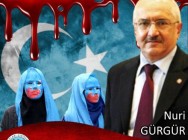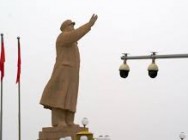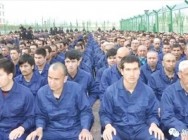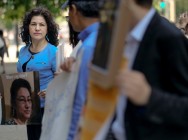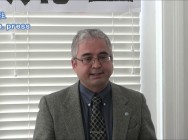Last Minute

- Conflict and Alliance: The US and China: A Centennial Dance: A Century of Relationship from 1900 to 2024
- CHINA RELATIONSEAST TURKESTAN PROBLEM AND TURKEY
- FRONTLINE China Undercover
- Elimination of “Uyghur Counter-Revolutionary Officials” in Academic Fields—Exact Quotes Translated from a Mandarin Audio File
- In Push for Trade Deal, Trump Administration Shelves Sanctions Over China’s Crackdown on Uighurs
- Dalai Lama’s 60th Anniversary Symposium: İlshat Hassan speech in English and Chinese
- Uyghur Detainees from Xinjiang ‘Placed in Nearly Every Prison’ in Shandong Province
- Shahrezad Ghayrat, Unrepresented Women
- Uighur Americans Speak Against China’s Internment Camps. Their Relatives Disappear.
- Rozinisa: The true story of the Uyghur girls in the prison

-

Conflict and Alliance: The US and China: A Centennial Dance: A Century of Relationship from 1900 to 2024
-

CHINA RELATIONSEAST TURKESTAN PROBLEM AND TURKEY
-

FRONTLINE China Undercover
-

Elimination of “Uyghur Counter-Revolutionary Officials” in Academic Fields—Exact Quotes Translated from a Mandarin Audio File
-

In Push for Trade Deal, Trump Administration Shelves Sanctions Over China’s Crackdown on Uighurs
-

Dalai Lama’s 60th Anniversary Symposium: İlshat Hassan speech in English and Chinese
Uyghur Scholar Tohti ‘Humiliated’ in Prison, Shackled Again
Detained Uyghur scholar Ilham Tohti has claimed that several inmates in his prison in northwestern China’s Xinjiang region ganged up on him and humiliated him, forcing a confrontation that led to him being shackled again, his lawyer said Thursday.
Lawyer Liu Xiaoyuan said he learned about the clash between Tohti and the other prisoners when he met the scholar at the detention center in Xinjiang’s capital Urumqi on Thursday ahead of his pretrial hearing this weekend.
“In the morning, I saw that he was wearing manacles and leg irons,” Liu told RFA’s Mandarin Service after his lengthy meeting with Tohti, a long-time advocate of Uyghur rights and outspoken critic of Chinese policies in the Xinjiang region.
“I spoke to the prosecutor’s office about it, and they said it was because there had been a confrontation with other inmates on Aug. 9.”
“Tohti told me that several people had ganged up on him and humiliated him,” Liu said. “There was a clash between him and [a few others], and the detention center accused him of getting into a fight, and he was subjected to internal disciplinary procedures.”
It was not immediately clear what triggered the fight last month between Tohti, who is facing separatism charges, and a few of his seven other cellmates, who were ordinary criminals.
The prosecutor at the detention center said the other inmates were also sanctioned, but Tohti told Liu they weren’t punished at all.
Dragged from home
Tohti was placed in leg irons for 20 days when he was first detained in January after being dragged away from his home in the Chinese capital Beijing by dozens of police, his former lawyer Wang Yu said in June after meeting him.
Tohti told her then that he was denied food and given one and a half glasses of water for 10 days in March in an apparent punishment for failing to cooperate with the authorities.
Human rights groups have said that Tohti’s detention is part of Beijing’s broad strategy to drown the voices of the mostly Muslim Uyghurs, who call Xinjiang their homeland.
They said his incarceration underscores the Chinese leadership’s increasing hard-line stance on dissent surrounding Xinjiang, where Uyghurs say they have long suffered ethnic discrimination, oppressive religious controls, and continued poverty and joblessness.
Tohti, who was sacked from his job as economics professor at the Central University for Nationalities in Beijing following his detention, has applied to attend his pretrial hearing on separatism charges, according to Liu.
Tohti has dismissed the charges as baseless.
“He is sticking to his original position, which is that he is simply an intellectual expressing a point of view. He had no intention of incitement to separatism, and he carried out no separatist activities either,” Liu said.
Evidence in doubt
Committing the state security crime of “separatism” can result in the death penalty in China, while the lesser crime of “inciting separatism” carries penalties ranging from less than five years to 15 years maximum.
Tohti has also said that some of the evidence against him should be disallowed and has demanded to watch several video recordings that would be used in testimonies in the trial, Liu said.
Among the evidence are 52 DVDs, five of which contain footage of Tohti’s university lectures.
His lawyers also want to cross-examine witnesses for the prosecution.
“That’s what we are going to be requesting, applying for. But some witnesses may not appear. It’s not entirely clear yet. The defense team is working on this, and we will be bringing it up at the pretrial hearing,” Liu said.
“Also, some witnesses have quoted him as saying certain things. But he says he didn’t say those things, and is insisting on seeing the videotapes of the interview.”
Tohti is also demanding that he be tried in Beijing, where he had worked and lived.
“He said the Xinjiang police shouldn’t be involved in his case, because he moved to Beijing in 1985, and his hukou [household registration] is in Beijing,” Liu said. “He started lecturing at the Central University for Nationalities in 1991.”
“If he is suspected of a crime, he says it should be the Beijing police who investigate the case against him, and that he should be tried in a Beijing court.”
“This is also the view of the defense team. We think it’s very strange that this case is being handled in Xinjiang. We will also be bringing up this issue of jurisdiction at the pretrial hearing.”
Family contact denied
Liu said Tohti expressed sadness that the prison authorities had refused to give him photos of his children brought by his lawyers.
“He had tears in his eyes when we talked about his children. I asked the detention center staff about the photos, and also mentioned it to the prosecution official there,” Liu said.
Chinese authorities have not allowed Tohti’s wife Guzelnur and their two young sons to meet with him in jail.
Asked about Tohti’s health, Liu said he has some pain and discomfort along his lower back and abdomen and on his right side that hasn’t gotten any better.
“He is feeling very sluggish, and is in some pain. His left eye looks smaller than his right, while his voice sounds hoarse and hurts sometimes. He has a nighttime cough.”
Reported by Qiao Long for RFA’s Mandarin Service. Translated by Luisetta Mudie and Feng Xiaoming. Written in English by Parameswaran Ponnudurai and Luisetta Mudie.
http://www.rfa.org/english/news/uyghur/shackled-09042014162301.html
RELATED NEWS








